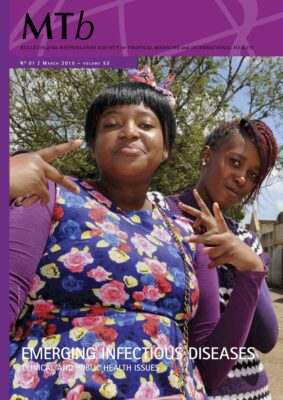

Tropical Medicine is full of surprises; there is never a dull moment. After the biggest surprise of all, the HIV pandemic that affected the lives of many and that has changed medicine in many parts of the world but especially in the Tropics, several new diseases have cropped up that caused havoc. Only recently an Ebola epidemic went completely out of control and caused great concern world-wide. One never forgets the scene on BBC World showing a patient in Sierra Leone who escaped in a panic from the treatment facility and...
Tropical Medicine is full of surprises; there is never a dull moment. After the biggest surprise of all, the HIV pandemic that affected the lives of many and that has changed medicine in many parts of the world but especially in the Tropics, several new diseases have cropped up that caused havoc. Only recently an Ebola epidemic went completely out of control and caused great concern world-wide. One never forgets the scene on BBC World showing a patient in Sierra Leone who escaped in a panic from the treatment facility and who was chased by health workers in protective gear, while bystanders watched the scene with fear and disbelief. This is Tropical Medicine for you: how to practise medicine in the tropics taking all the difficulties into account and these were huge in this case. It is heartening to see that Médecins sans Frontières (MSF), once again, was on the spot immediately and did an excellent job. On the other hand, the international community including the World Health Organization (WHO) was slow in responding. It is interesting to note how difficult it was to make predictions on the extent of the epidemic that was feared to affect 1.4 million people (reported and unreported cases) by January 2015 in a worst-case scenario by the Centres for Disease Control (CDC). Now the epidemic seems to be slowing down with 13,000 cases by November 2014 instead of the predicted 20,000 by the WHO. This is good news, but as The Economist wrote (February 7th 2015): … ‘it will be harder to catch the world’s attention next time.’ Influenza never fails to hit the news either as avian flu outbreaks, or as the seasonal flu, or in flu pandemics showing the seemingly unlimited potential of viruses to (re-)emerge in new viruses that threaten human health world-wide. Here the role of animal reservoirs is clearly demonstrated making it difficult to control this infection effectively; one can only hope for new vaccines as antivirals have their limitations. Other outbreaks were more or less readily contained such as Severe Acute Respiratory Syndrome (SARS) and perhaps the Middle East Respiratory Syndrome (MERS). Here also the importance of animals is demonstrated with dromedary camels acting as an intermediate host for MERS in Saudi Arabia. These animals are the symbol of many Arab countries and of major economic importance, thus adding to the difficulties for control. The Dengue, Chikungunya and West Nile virus infection epidemics are examples of arthropod-borne infections. This brings another factor into the equation, namely climate change and global warming that have been implicated in the spread of these mosquito vectors and therefore the viruses they carry. Currently, we have inadequate knowledge of (micro-)biology, zoology and ecology to predict new outbreaks of whatever nature and how to quickly respond and contain these, let alone to provide protection by vaccines or other control methods. THE CHAPTER OF EMERGING INFECTIOUS DISEASES IN TROPICAL MEDICINE IS NOT LIKELY TO BE CLOSED IN THE FORESEEABLE FUTURE.
Ed Zijlstra, Rotterdam Centre for Tropical Medicine, e.e.zijlstra@roctm.com





















































